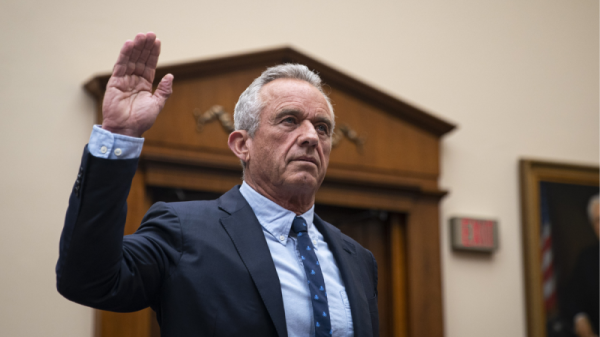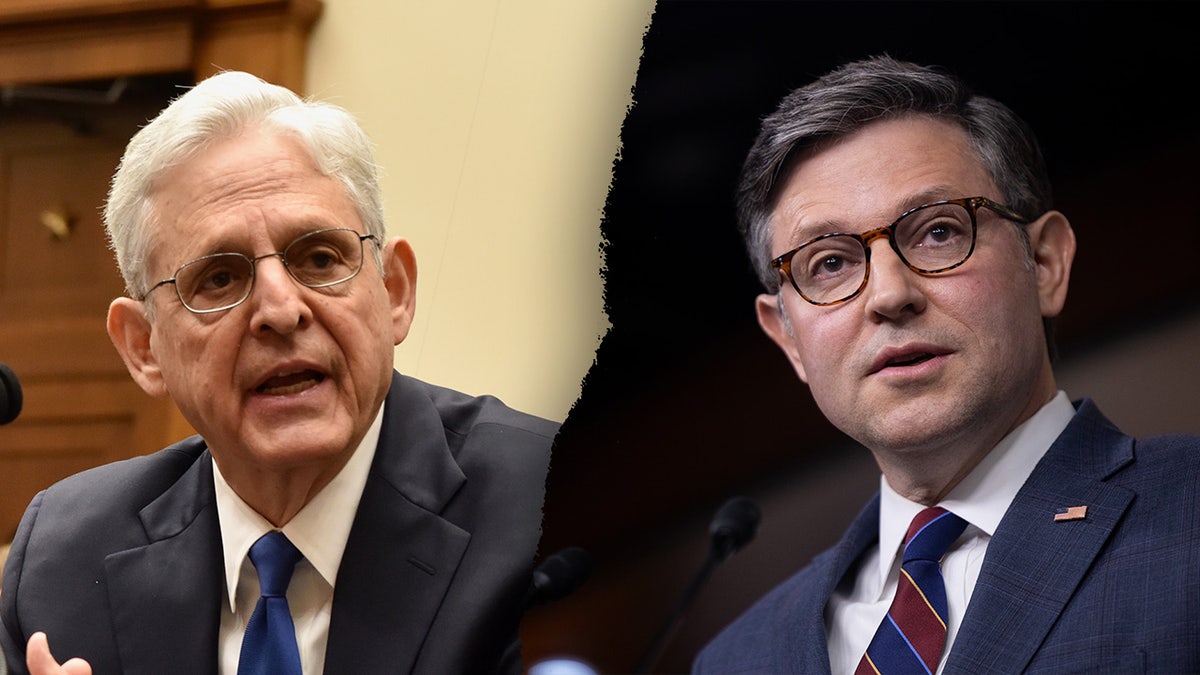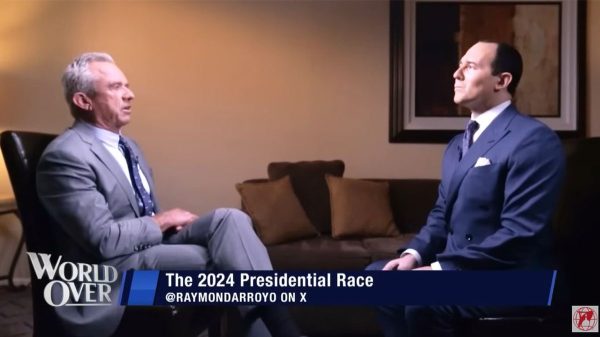The House voted to hold Attorney General Merrick Garland in contempt of Congress on Wednesday, referring the top Department of Justice (DOJ) official for criminal charges.
The measure passed nearly along party lines in a 216 to 207 vote, with just one Republican, Rep. David Joyce, R-Ohio, voting against it.
Joyce said in a statement after the vote, ‘As a former prosecutor, I cannot in good conscience support a resolution that would further politicize our judicial system to score political points. The American people expect Congress to work for them, solve policy problems, and prioritize good governance. Enough is enough.’
GOP lawmakers aimed to hold Garland in contempt over his refusal to turn over audio recordings of Special Counsel Robert Hur’s interview with President Biden.
Hur concluded that no criminal charges were warranted in Biden’s handling of classified documents, but also said the 81-year-old president presented himself ‘as a sympathetic, well-meaning, elderly man with a poor memory,’ and that ‘it would be difficult to convince a jury that they should convict him — by then a former president well into his eighties — of a serious felony that requires a mental state of willfulness.’
Biden and his allies aggressively pushed back on concerns about his mental fitness in the report’s wake.
The Justice Department released a statement from Attorney General Garland after the vote.
‘It is deeply disappointing that this House of Representatives has turned a serious congressional authority into a partisan weapon. Today’s vote disregards the constitutional separation of powers, the Justice Department’s need to protect its investigations, and the substantial amount of information we have provided to the Committees,’ he said.
‘I will always stand up for this Department, its employees, and its vital mission to defend our democracy.’
Republicans seeking the audio recording argued it would provide critical context about Biden’s state of mind. Democrats, meanwhile, have dismissed the request as a partisan attempt to politicize the Department of Justice.
‘It’s a huge disappointment. I think it’s an abuse of the congressional contempt power,’ Rep. Glenn Ivey, D-Md., told Fox News Digital of the GOP effort.
Rep. Chip Roy, R-Texas, however, argued that the DOJ’s refusal meant Garland simply wanted it hidden.
‘There’s only one reason why the attorney general would do that. He doesn’t want us to hear it. That’s why,’ Roy said on the House floor Wednesday. ‘And there’s really only two reasons why that would be the case — either the transcript doesn’t match the audio, or the audio is so bad that he doesn’t want us to hear it.’
The pursuit of Hur’s audio tapes is part of the House GOP’s wider impeachment inquiry into President Biden, investigating allegations he used his political position to enrich himself and his family. Biden has denied accusations of wrongdoing.
House Republicans halted advancement of a contempt resolution against Hunter Biden, the president’s son, earlier this year after GOP investigators reached an agreement with his attorneys.
Meanwhile, two ex-Trump administration aides — former Trump trade adviser Peter Navarro and former White House chief strategist Steve Bannon — were convicted on contempt of Congress charges for dodging subpoenas by the House select committee on Jan. 6.
Both were referred for criminal charges by the previous Democrat-controlled House of Representatives. The DOJ did not act on a third referral by Democrats for former White House Chief of Staff Mark Meadows.
It’s highly unlikely the DOJ will act on House Republicans’ Garland referral, something that frustrated House Republicans who spoke with Fox News Digital on Wednesday.
‘I’m not optimistic, because I think the DOJ has proven themselves very partisan and not honest brokers of how they apply the law,’ said Rep. Rich McCormick, R-Ga.
When asked if he thought the DOJ might act, Rep. Byron Donalds, R-Fla., quipped, ‘Not likely.’
Garland took an indirect shot at Republicans’ pushback on the DOJ in a Washington Post op-ed on Tuesday morning.
‘In recent weeks, we have seen an escalation of attacks that go far beyond public scrutiny, criticism, and legitimate and necessary oversight of our work. They are baseless, personal and dangerous,’ he wrote. ‘These attacks come in the form of threats to defund particular department investigations, most recently the special counsel’s prosecution of the former president.’






























